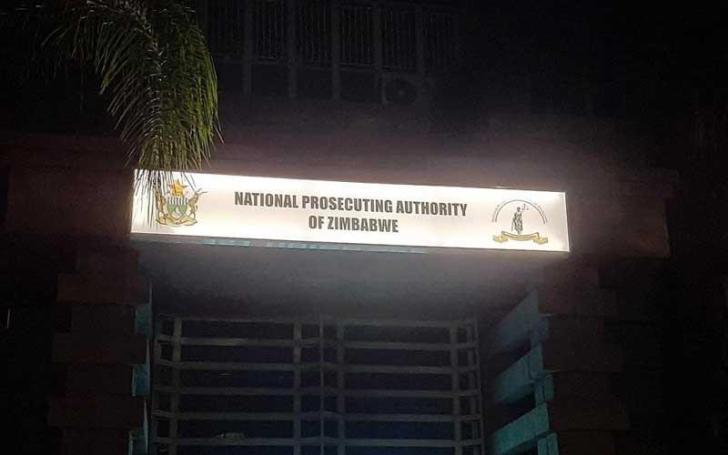News / National
Zimbabwe's NPA to grant ZACC prosecution certificates
08 Feb 2025 at 12:31hrs |
0 Views

The National Prosecuting Authority (NPA) has announced its readiness to issue prosecutorial certificates to the Zimbabwe Anti-Corruption Commission (ZACC) to enable the anti-graft body to prosecute cases. However, ZACC must adhere to strict prosecutorial guidelines, including separating prosecution teams from investigators.
Prosecutor General Justice Loice Matanda-Moyo confirmed the development in an interview, emphasizing her openness to teamwork and the importance of ensuring public trust in the justice system.
"If they want to prosecute matters, they can approach me. I have the powers to issue prosecutorial certificates, as long as they have a set department distinct from investigations. This ensures we do not have an outcry from the public that the same person investigating is also prosecuting," said Justice Matanda-Moyo.
The Prosecutor General underscored that the NPA is willing to work with other competent bodies, including ZACC, to address delays in prosecuting corruption cases. "We do not hoard the right to prosecute. The more people we have on board, the better. As long as they report to the Prosecutor General and adhere to our prosecutorial guidelines, I see no issue," she said.
Justice Matanda-Moyo highlighted that the NPA sometimes prioritizes crimes that are more prevalent, such as armed robberies and murder, to enhance public safety. She welcomed the idea of sharing the workload with ZACC or other entities, provided the prosecutorial process remains impartial and transparent.
Over the years, ZACC has advocated for prosecutorial powers, arguing that the current system sometimes stalls progress on corruption cases. The anti-graft body has expressed frustration with instances where the NPA has declined to prosecute cases despite ZACC's belief that they have gathered sufficient evidence.
ZACC Chairperson Loice Matanda-Moyo noted, "We have seen cases where we believe all possible areas of the law have been addressed, yet decisions are made not to prosecute. This delays justice and undermines public confidence in the fight against corruption."
The issue has been highlighted in high-profile cases, such as the recent withdrawal of charges against Harare City Council Town Clerk Hosiah Chisango and four others over a $9 million street lights tender. ZACC disagreed with the NPA's decision, maintaining that the accused have a case to answer. The commission is now preparing new charges against them.
The issuance of prosecutorial certificates could mark a significant step forward in expediting corruption cases, allowing ZACC to take cases directly to court. However, both the NPA and ZACC agree that adherence to prosecutorial guidelines is critical to maintaining the integrity of the judicial process.
Justice Matanda-Moyo emphasized the need for clear boundaries to avoid conflicts of interest. "The distinction between investigators and prosecutors is essential to ensure impartiality. As long as ZACC lawyers follow these guidelines, there is no problem," she said.
With this new collaboration, the hope is that corruption cases will move more swiftly through the justice system, ensuring accountability and bolstering public trust in the fight against graft.
Prosecutor General Justice Loice Matanda-Moyo confirmed the development in an interview, emphasizing her openness to teamwork and the importance of ensuring public trust in the justice system.
"If they want to prosecute matters, they can approach me. I have the powers to issue prosecutorial certificates, as long as they have a set department distinct from investigations. This ensures we do not have an outcry from the public that the same person investigating is also prosecuting," said Justice Matanda-Moyo.
The Prosecutor General underscored that the NPA is willing to work with other competent bodies, including ZACC, to address delays in prosecuting corruption cases. "We do not hoard the right to prosecute. The more people we have on board, the better. As long as they report to the Prosecutor General and adhere to our prosecutorial guidelines, I see no issue," she said.
Justice Matanda-Moyo highlighted that the NPA sometimes prioritizes crimes that are more prevalent, such as armed robberies and murder, to enhance public safety. She welcomed the idea of sharing the workload with ZACC or other entities, provided the prosecutorial process remains impartial and transparent.
Over the years, ZACC has advocated for prosecutorial powers, arguing that the current system sometimes stalls progress on corruption cases. The anti-graft body has expressed frustration with instances where the NPA has declined to prosecute cases despite ZACC's belief that they have gathered sufficient evidence.
ZACC Chairperson Loice Matanda-Moyo noted, "We have seen cases where we believe all possible areas of the law have been addressed, yet decisions are made not to prosecute. This delays justice and undermines public confidence in the fight against corruption."
The issue has been highlighted in high-profile cases, such as the recent withdrawal of charges against Harare City Council Town Clerk Hosiah Chisango and four others over a $9 million street lights tender. ZACC disagreed with the NPA's decision, maintaining that the accused have a case to answer. The commission is now preparing new charges against them.
The issuance of prosecutorial certificates could mark a significant step forward in expediting corruption cases, allowing ZACC to take cases directly to court. However, both the NPA and ZACC agree that adherence to prosecutorial guidelines is critical to maintaining the integrity of the judicial process.
Justice Matanda-Moyo emphasized the need for clear boundaries to avoid conflicts of interest. "The distinction between investigators and prosecutors is essential to ensure impartiality. As long as ZACC lawyers follow these guidelines, there is no problem," she said.
With this new collaboration, the hope is that corruption cases will move more swiftly through the justice system, ensuring accountability and bolstering public trust in the fight against graft.
Source - the herald
Join the discussion
Loading comments…






























